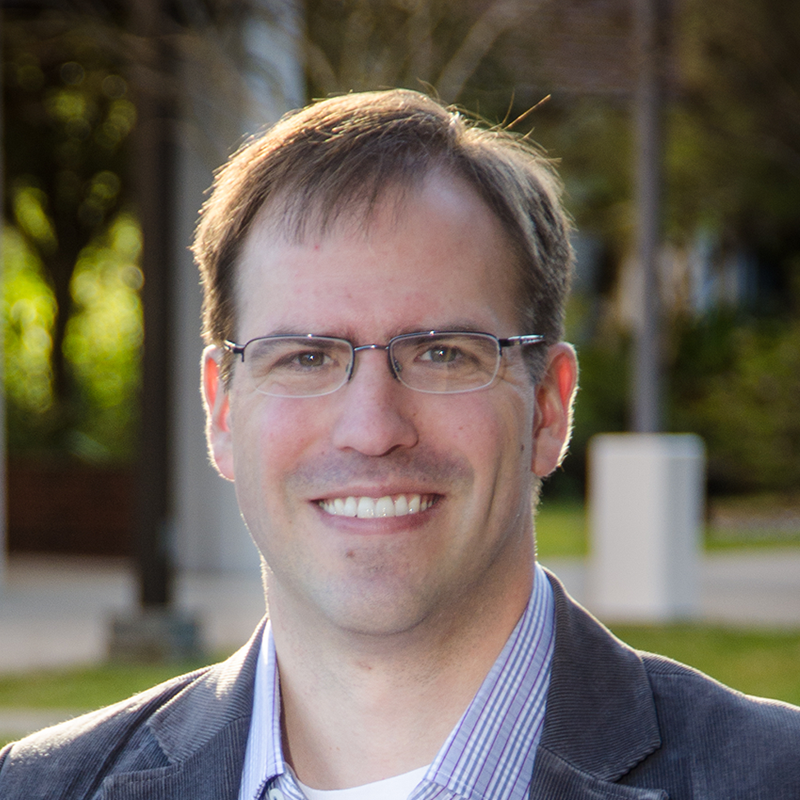University of Florida researchers led by Dr. Kyle D. Allen (PI, UF BME) are helping the RE-JOIN Consortium, a nationwide program by the National Institutes of Health, to advance the understanding of pathology-pain relationships in the knee and TMJ by combining expertise in neural tracing, 3-dimensional imaging, and evaluations of chronic joint pain and disability.
Led by the National Institute of Arthritis and Musculoskeletal and Skin Disease with contributions from 5 other NIH institutions, the NIH’s RE-JOIN Consortium is seeking to restoring joint health and function to reduce pain. The consortium is part of the NIH’s Helping to End Addiction Long-term (HEAL) Initiative, where many people with opioid use disorder cite chronic musculoskeletal pain as a contributing factor to their opioid use. Because joints are made up of many tissues, understanding how nerves project through different joint tissues can help us to understand the sensation of joint pain, including how these sensations change with age and disease.
The team led by Dr. Allen is one of five awardees to tackle this major NIH objective of mapping how innervation patterns in the knee and TMJ change with health and disease. This team includes other members of UF BME (Dr. Kevin Otto), as well as experts in the UF College of Dentistry (Dr. Robert Caudle, Dr. Yenisel Cruz-Almeida, and Dr. Franklin Dolwick), UF College of Medicine (Dr. Hari Parvataneni), UF College of Public Health and Health Professionals (Dr. Zhiguang Huo), and collaborators at the University of Pittsburgh (led by Dr. Alejandro Almarza) and Emory University (led by Dr. Yona Levites). Dr. Allen and a multidisciplinary team were awarded a $6 million grant for their project, defining how the neurons that mediate chronic pain innervate different joint tissues in both preclinical models and clinical samples. With the current $6M award, the UF BME team will strive to reach targeted milestones in the next three years. If they are successful, there is an opportunity to continue the work with an additional $4M award in years 4 & 5 for a total of $10M.
Specifically, this work aims to achieve the goals of the RE-JOIN program by investigating pathology-pain relationships for both knee and TMJ degeneration in both rodent models and human subjects. To achieve this, the team will create innervation maps of the knee and TMJ and overlap maps that show shifts in specific neural subtypes with detailed assessments of joint pain and disability. Combined, these data will allow them to construct pathology-pain relationships that describe how changes in the phenotype and distribution of specific neural subtypes relate to the symptomatic presentation of chronic joint pain. The goal is for this information to lead to new targeted therapies for joint pain and personalized approaches for the treatment of joint pain in the future.
Dr. Allen serves as the overall project lead for the UF team and will lead knee innervation mapping studies. Dr. Otto will focus his efforts with Drs. Allen, Caudle, and Almarza to develop tissue clearing and 3D imaging techniques for mapping the innervation of the knee and TMJ.
University of Florida Team Members:
- Kyle D. Allen (PI), Associate Professor, Department of Biomedical Engineering, University of Florida
- Kevin Otto (Co-I), Professor & Senior Associate Chair, Department of Biomedical Engineering, University of Florida
- Robert Caudle (Co-I), Professor, College of Dentistry, University of Florida
- Yenisel Cruz-Almeida (Co-I), Associate Professor, College of Dentistry, University of Florida
- Hari Kiran Parvataneni (Co-I), Professor of Orthopaedic Surgery, College of Medicine, University of Florida
- Franklin Dolwick (Co-I), Professor, College of Dentistry, University of Florida
- Huo Zhiguang (Co-I), Assistant Professor, Department of Biostatistics, University of Florida
University of Pittsburgh Team Members:
- Alejandro Almarza (MPI), Associate Professor, Department of Oral and Craniofacial Sciences, School of Dental Medicine, University of Pittsburgh
- Alan Watson (Co-I), Assistant Director of the Center for Biologic Imaging (CBI), University of Pittsburgh
- William Chung (Co-I), Associate Professor, Department of Oral & Maxillofacial Surgery, School of Dental Medicine, University of Pittsburgh
Emory University Team Members:
- Yona Levites (Co-I), Research Assistant Professor, Department of Neuroscience, Emory University
